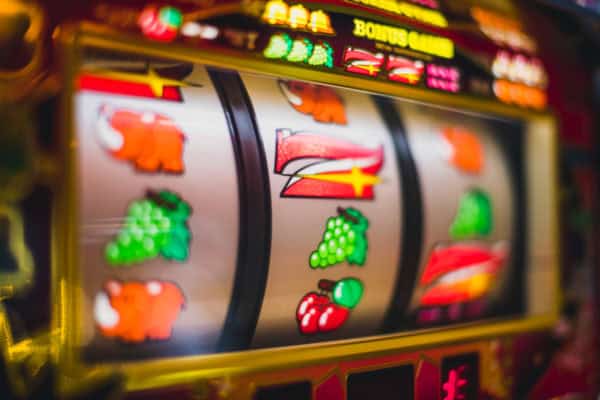The captivating world of slot machines has long been a cornerstone of the casino experience, drawing players in with dazzling lights, ringing sounds, and the promise of hitting the jackpot. This adrenaline rush, often sparked by a single spin, keeps millions returning to try their luck. But beneath the surface, slot machines are powered by intricate technology that decides the outcome of each spin. This raises a common, thought-provoking question: are these outcomes genuinely random, or are they cleverly engineered to favor the house?
This mystery is at the heart of many players’ experiences. When you spin the reels, is the game a fair shot of chance? Or are algorithms determining the results? As online platforms like Plinko Casino rise in popularity, players are increasingly curious about how these systems work and how random their favorite games are.

The Mechanics Behind Slot Machines
To demystify the inner workings of slot machines, it’s essential to understand the mechanics behind them. Unlike older mechanical machines, modern slot games — online or in physical casinos — rely on sophisticated software, with the Random Number Generator (RNG) being the show’s star. The RNG constantly generates sequences of numbers corresponding to reel symbols, determining what you see on the screen every time you press the spin button.
When you hit «spin,» the RNG has its numbers ready, matching those numbers to the symbols that will appear. This happens in milliseconds, ensuring that no two spins are alike. The result? It is a gaming experience that feels as unpredictable as it is exciting.
Random Number Generators (RNGs): The Core of Slot Algorithms
RNGs are fundamental to slot machine algorithms’ operation, ensuring that every spin is independent of the last. But are they truly random? Technically, RNGs are pseudo-random, meaning that while they simulate randomness, they are still generated by a mathematical formula. This might lead some to wonder if the process is random or if subtle patterns could influence the outcomes.
However, the sophistication of these algorithms ensures that the randomness feels authentic for all practical purposes. The numbers generated by the RNG occur at such rapid speeds that no player could predict or control them, making each spin feel just as unpredictable as the last.
The Role of Pseudo-Randomness
The term «pseudo-random» means that the RNG is based on an initial seed value, which could be influenced by factors like the exact millisecond you press «spin.» The RNG uses this seed to generate results that appear random, even if the process is formulaic. This complexity makes it nearly impossible to crack or predict the outcome of any given spin. However, it’s important to note that randomness in slot machines is designed to maintain fairness while giving the house a slight advantage.
House Edge and Return to Player (RTP)
Speaking of advantages, it’s essential to understand that slot machines are built with a house edge — the casino’s built-in profit margin. This means that while players can have moments of success, the game is programmed to ensure the casino wins in the long run. Another critical factor in the slot machine experience is the Return to Player (RTP) percentage. This tells players how much they can expect to get back over time. For example, a slot machine with an RTP of 95% will pay back $95 for every $100 wagered, calculated over thousands of spins and doesn’t apply to individual sessions.
Debunking Myths: Can Slot Machines Be «Due» for a Win?
One persistent myth in gambling circles is that a machine is «due» for a big payout if it hasn’t paid out in a while. This is known as the gambler’s fallacy and is based on misunderstanding how RNGs work. Each spin is entirely independent of the previous ones. So, even if a machine hasn’t hit a jackpot for hours, it doesn’t increase the odds of a win on the next spin. The RNG doesn’t remember the past, and neither should you when deciding your next move.
Regulations and Fairness in Slot Machines
Given how crucial RNGs are to maintaining fairness, it’s no surprise that regulatory bodies play a significant role in overseeing their use. Licensed casinos — online and brick-and-mortar — are subject to rigorous checks to ensure that their RNGs function correctly and fairly. Independent audits are conducted regularly to ensure that the games are not rigged. These efforts guarantee that individual spins remain fair and unpredictable while the house retains a statistical edge.
The Future of Slot Machine Algorithms: AI and Adaptive Gaming
Looking ahead, slot machine algorithms may soon incorporate artificial intelligence (AI) to create even more engaging experiences. AI could be used to adapt games to players’ behaviour, offering personalized experiences while keeping the randomness of each spin intact. While RNGs will continue to power the basic mechanics, AI might introduce new layers of strategy, blurring the lines between luck and skill-based gaming.
Conclusion: Are Slot Machines Truly Random?
In the end, while RNGs are technically pseudo-random, the outcomes of modern slot machines are as random as current technology allows. Each spin is designed to be unpredictable and independent, ensuring fairness while maintaining the house edge through RTP percentages. As more players turn to online casinos, understanding the science behind these algorithms helps demystify the process, reminding players that while the thrill is accurate, fairness is always overseen by technology and regulations. With advancements in AI on the horizon, the future of gaming promises even more exciting innovations.
 Gearfuse Technology, Science, Culture & More
Gearfuse Technology, Science, Culture & More

